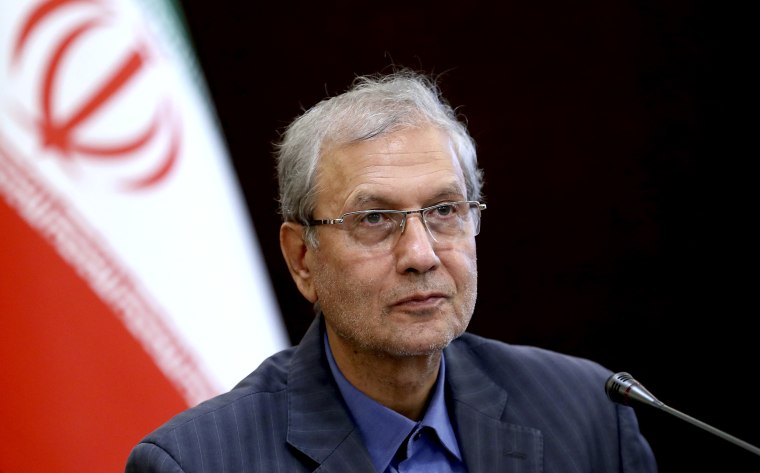Tehran said Sunday that it was ready to exchange prisoners with the United States without any preconditions amid concerns for the health of Iranian prisoners in U.S. jails during the coronavirus pandemic.
"We have announced that without any preconditions, we are ready for a full prisoner swap and ready for talks on this matter,” government spokesman Ali Rabiei said during a video briefing with reporters on the coronavirus situation in the country.
Rabiei said the government was worried about Iranians "in bad situations in U.S. jails" as the outbreak in the U.S. continues to grow.
He added that American officials have not responded yet, but that Iranian government hoped the U.S. will "prioritize individual lives over politics" during the pandemic.
Iran holds the U.S. government responsible for the life and health of all Iranian prisoners, Rabiei said, adding that "it does seem the readiness of the Americans to end this situation is higher, so we won't make any final judgment."
He said there was no need for a mediator for the swap, adding that the American government has been informed about Iran’s readiness to exchange prisoners.
Should the U.S. government agree to the swap, Rabiei said, Iran will provide more details and proposed timing to Washington.
“The United States is committed to the return of all U.S. citizens wrongfully held abroad," State Department spokesperson Morgan Ortagus told NBC News Monday. "We do not conduct sensitive diplomacy through the media."
If a swap goes ahead, it would be one of very few instances of cooperation in an otherwise deeply frayed U.S.-Iran relationship.
Both countries have called for the release of prisoners because of the coronavirus outbreak. Iran is the worst-hit country in the Middle East; the United States has reported the highest number of deaths worldwide from the virus.
In March, Iran granted a medical furlough to U.S. Navy veteran Michael White whose family warned he was at acute risk from the coronavirus.
Last December, Tehran also freed U.S. citizen Xiyue Wang, who had been held for three years on spying charges, and the United States released Iranian Massoud Soleimani, who faced charges of violating American sanctions on Iran.
Relations between the two nations have grown more hostile since President Donald Trump exited a nuclear deal between Iran and world powers in 2018, and re-imposed sanctions on Tehran that have crippled its economy.
Iran has responded by scaling back its commitments under the agreement.
Animosity reached historic heights in early January when top Iranian military commander Qassem Soleimani was killed in a U.S. drone strike in Baghdad, causing Iran to retaliate by firing missiles at military bases housing U.S. forces in Iraq.

